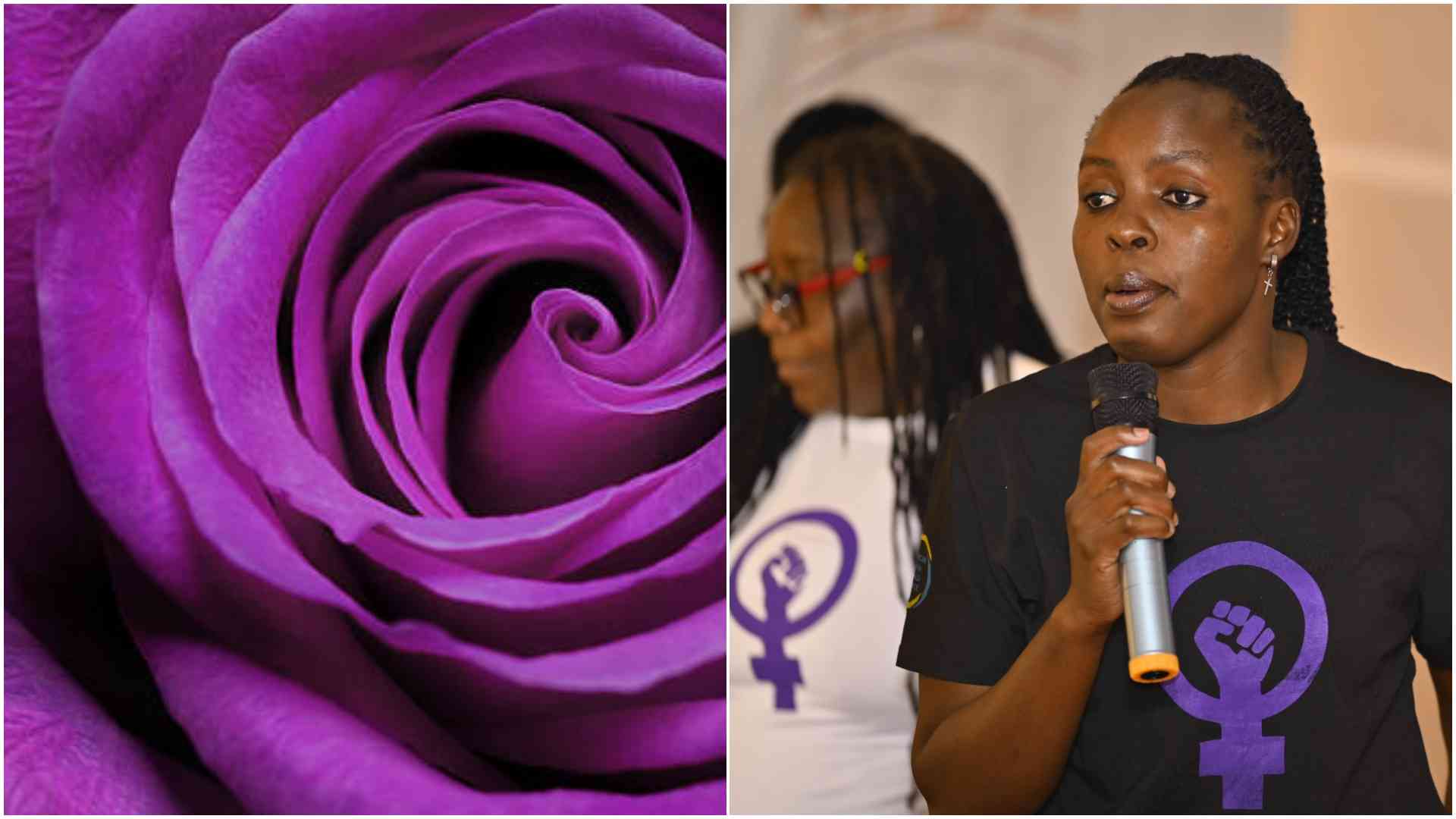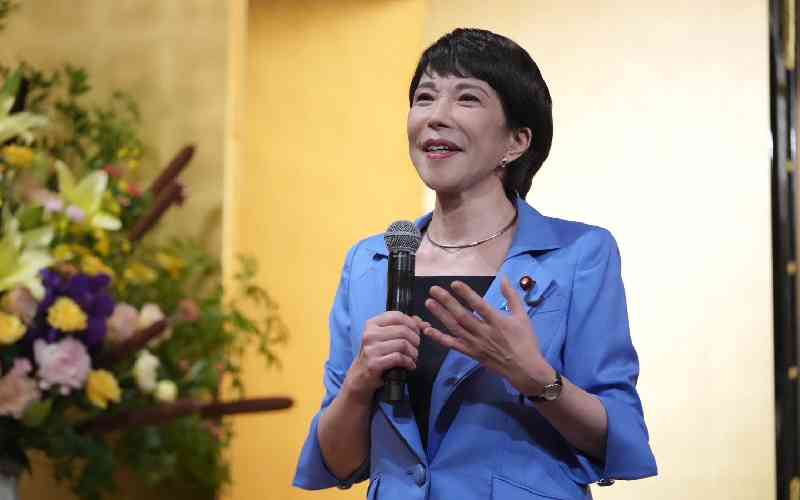
One night in 2008, as Anastacia Mukabwa slept in her bedroom, she saw what she now describes as a vision.
“I saw a bright sheet of light with various scriptures written on it. God revealed to me that He wanted me to come up with a song that would not only touch lives but leave a mark for generations to come. To cap it all, God gave me the wordings of the song Kiatu Kivue during my dream and instructed me to release it,” she narrates during an interview with Eve.
She adds that when she woke up, she could hardly understand what had just happened. Was it just a dream?
As she went about her life, Anastacia chose to ignore what had happened, believing the memory would fade away. But over the next few nights, the dream kept coming back, over and over.
“I started to wonder if maybe God was speaking to me. Back then, I was serving as a leader for the praise and worship team at my church. I sought advice from my pastor Joseph Maisha who later became my spiritual mentor,” Anastacia says.
Finding her passion
Anastacia was born in remote Ikhula village, Budalang’i area, Western Province. When she was two years old, her father, Cybil Obure, got a job as Chief Accountant for an independent manufacturer in Mombasa and moved the family to the city’s Kongowea estate.
There, the family found a church where her father eventually served as a pastor. From singing in Sunday school and eventually leading the Sunday school choir, Anastacia developed an interest in a career as a Gospel singer.
In 1989, when Anastacia was 12, her life took a sudden turn when her father fell ill and died. “I was a Class Eight pupil at Maweni Primary School. He had been the sole breadwinner so losing him made life extremely difficult for us,” Anastacia narrates. With six children to feed, her mother Margaret Mbande, who was unemployed, could not make ends meet.
To make matters worse, during her father’s burial, his family (siblings and relatives) had tried to force her mother to be inherited by another man.
“My mother and her family protested so they took away all the property my father owned, claiming we were no longer part of their family. We had to start life from scratch,” Anastacia continues.
With nowhere else to go, the family moved to Maweni slums in Mombasa. “My father’s death automatically meant I was in and out of school. I was the second born in the family so I had to do whatever I could to help feed the family. On some days, all we could find to eat was the half-rotten vegetables we picked from the nearby Kongowea Market,” she narrates.
During school holidays, Anastacia and her siblings did menial jobs to make ends meet. They ranged from farming to laundry and vending food. Her elder brother, then 15, opted to do construction work, otherwise known as “kazi ya mjengo”.
“All this really affected me. I had been the top pupil at my school and now the future of my education seemed uncertain. There were times when I contemplated suicide. I felt like such a loser in life,” she narrates.

One day, Lady Luck seemed to finally smile on Anastacia. A man named Thomas Nakaki, only known to her as her father’s distant relative, offered to pay her secondary school fees at Mombasa High School, all the way to Form Four.
“But other than my mother and siblings who appreciated his efforts, the rest of the community termed it a waste of time and money to educate a girl. They said it was like watering someone else’s garden,” she says.
“It didn’t help that things remained tough at home though and I was faced with this reality every time I got home from school. When I met and fell in love with a man named Isah, I dropped out of school and decided to go and live with him, determined to find myself a secure home, away from the life of poverty,” she says adding that she was only 16 years old then.
As expected, Anastacia’s mother protested her decision which she termed immoral and irrational. In addition, Isah was Muslim.
“She had no choice but to let me go. I was already pregnant with Isah’s child,” Anastacia recalls, adding that she imagined that the birth of their son, Prince Lawrence, would make their love stronger.
But their differences soon took a toll on their union. “We disagreed on so many things and ended up fighting. Most times, I had to wear a buibui and hijab, the robe and head covering worn by Muslim women. Understandably, it took me a while to get used to it. Then it seemed like I had to either convert to Islam or lose my family and marriage. Worse still, I learnt that my husband was planning on marrying a second wife as his religion allows him to marry up to four wives,” Anastacia says.
“That was the beginning of my nightmare. The only comfort I had, besides crying day and night, was my baby boy Lawrence and my unborn baby. It really affected me. I was exhausted -- emotionally, physically and spiritually,” she says.
But even with the endless months of tension and no one to talk to, Anastacia gave birth to a second baby, a healthy girl who she named Rose.
Meanwhile at home, Anastacia’s mother had been deeply affected by her hasty decision. The thought of her daughter disobeying her culminated into bitterness and shame. She became a recluse and chose to keep to herself. There seemed to be no way out for reconciliation.
“Going back home was the last thing on my mind after failing to heed my mother’s advice. I felt so much shame. My relatives shunned me except for some of a few who faced the wrath of the village elders for choosing to comfort and encourage me during these trying moments,” Anastacia narrates.
One day in 1998, I attended an evangelical crusade in my area led by Joseph Maisha, the same pastor (now bishop) who later became my spiritual mentor. I gave my life to Christ and started spending a lot of time reading and composing gospel songs.
Anastacia says she spent time praying and fasting, asking God to touch the life of her husband. She says it took close to four years before God finally answered her prayers.
“One day when I got back home from church, I was surprised to find my husband sitting at our doorstep with a Bible in his hands. Before I could even utter a word, he informed me of his decision to accept Jesus Christ as his personal saviour. At first, I thought it was a dream that would soon come to an end, but to my surprise he asked that we attend church together,” she says.
But just when it seemed that everything was working out in her favour, Anastacia found out that her husband’s family was not happy with his decision to convert to Christianity.
“There were times when we hardly spoke to each other despite the fact that we lived under the same roof. He had become a totally different person and this got me thinking aloud, wondering what to do next,” Anastacia narrates.
“I was not willing to give up on my dreams of serving God. I spent time crying, pleading and reminding God of his promises over my life and asking Him for a second chance. Being the faithful and covenant keeping God, He answered my prayers,” she says.
“Despite the challenges we have been through, I still love and respect my husband. I will never stop seeking the face of God as far as our marriage goes because, without God, nothing can work for good. We need God in every area of our lives,” Anastacia says.

New mission
As a member of the praise and worship team, Anastacia composed songs, which she performed at various church functions and evangelical crusades upon request.
“Nobody seemed to recognise my talent beyond this. There were times when I almost gave up on my dream but, with words of encouragement from my pastor, I kept singing. I would fast and pray over several months, seeking God’s intervention,” Anastacia says.
Ready to embark on a new mission to record her debut album, Anastacia realised she didn’t have enough money. “I didn’t want to bother my pastor or any of the church members. They had already done so much for me. I wanted it to be a surprise, both to my husband, pastors and church members,” Anastacia says adding that she decided to look for a part-time job so she could raise money to record her debut album. This proved challenging because, having dropped out of high school and with young children to watch, she had few job options.
Desperate, she went to a nearby little-known studio within her hometown to record her song during her free time. However, upon its release, the song was not accorded airplay on any media house owing to its poor quality.
“I was discouraged but I was not willing to give up. I believed that God would work out the answer,” Anastacia narrates.
Doors open
One day in 2007, while attending a crusade held a Mombasa Stadium, she saw her role model, Tanzanian Gospel singer Rose Muhando performing on stage.
“At the time her album ‘Uwe Macho’ was a hit so I knew who she was. She picked me out from the crowd and said to me, ‘I do not know you but I want you to know that God has seen and heard your cries. Kindly see me after my performance,” Anastacia says.
Later, Muhando told her that she had heard her singing and was impressed. She then invited her to Tanzania two months later. Muhando met all her expenses during the trip; travel, upkeep and recording of her first album, ‘Umetoa Shimoni’ comprising six songs.
But for some reason, the album, produced by Marlon Linje in Dar es Salaam, did not do well.
A year later, Anastacia composed and recorded, ‘Kiatu Kivue’ with the little money she got from various menial jobs, believing that it would do better than her first album. Still, upon its release she it never got the airplay she had hoped for. Not being one to give up on her dreams, Anastacia sought out Muhando. She believed working with her would help, knowing how popular and experienced she was.
“I finally travelled to Dar es Salaam in 2010 upon Rose’s request. We re-recorded Kiatu Kivue, featuring Rose at Fabrice Studio with producer Shumari,” Anastacia narrates.
So popular was the song that radio stations, clubs and matatus plying various routes within the country played it. DJs even played the song at political rallies. But despite its popularity, there were times Anastacia felt frustrated from seeing her efforts attributed to Rose Muhando.
“Pirates made money from selling the Kiatu Kivue CDs under Muhando’s name. This made music fans believe that the song actually belonged to her,” Anastacia explains adding that some media houses and ringtone vendors misled fans even further.
“My family – in particular my two children – were affected by this, knowing too well that their mother’s efforts were being credited to someone else,” she says. The children, her 22-year-old son and 20-year-old daughter, are now post-secondary school students.
Anastacia emphasises that Muhando had no part in the miscommunication and in fact assisted in clearing the air concerning Kiatu Kivue both in Tanzania and in Kenya.

Living her dream
Today, having regained her footing, Anastacia has released five more albums that have been well received. Some of her popular hits include, Watangoja Sana, My God Oh, Record Breaker, Timing, Wanaokudharau and Kama Si Mungu. Her latest single, Expiry, is also quite popular.
“Despite everything, I am glad that today people know the truth -- that Kiatu Kivue is actually my song. Above all, I have no regrets because Muhando happens to be one of my role models, my mentor, friend and sister in Christ,” she says.
Anastacia chooses not to comment on media reports of Muhando’s downfall.
“I know that lately a lot has been said and written about Muhando. One thing I can clearly state is that I wish her well. After all no one is perfect. To those quick to judge others, my advice to you lies in the Book of Luke 6:42: “How can you say, ‘Brother, let me take the speck out of your eye,’ while you yourself fail to see the beam in your own eye? You hypocrite, first take the beam out of your own eye, and then you will see clearly to remove the speck from your brother’s eye.”
However, in an interview published on YouTube channel Mseto East Africa on December 17, Anastacia spoke about helping Muhando to receive treatment in hospital for an illness which she declined to name.
To upcoming Gospel artists, she says she believes that gospel music is not meant for entertainment but only for spreading the Gospel, hence the need for upcoming gospel artistes to refer to the Bible when composing their music.
“They need to realise the importance of using their God-given talents to glorify God. Above all they should work together for a common cause as opposed to diluting Gospel music by venturing into it for fame and money.”
She says local Gospel music is divided into two categories -- Gospel ministers (true gospel artists) and concert artists (those who are in it for fame and money).
 The Standard Group Plc is a multi-media organization with investments in media
platforms spanning newspaper print
operations, television, radio broadcasting, digital and online services. The
Standard Group is recognized as a
leading multi-media house in Kenya with a key influence in matters of national
and international interest.
The Standard Group Plc is a multi-media organization with investments in media
platforms spanning newspaper print
operations, television, radio broadcasting, digital and online services. The
Standard Group is recognized as a
leading multi-media house in Kenya with a key influence in matters of national
and international interest.











